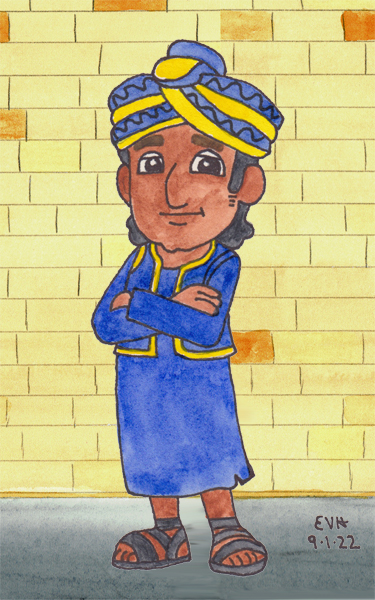
Jataka 363
Hiri Jātaka
The Story of Honor
as told by Eric Van Horn
originally translated by H.T. Francis and R.A. Neil, Cambridge University
originally edited by Professor Edward Byles Cowell, Cambridge University
This Jātaka is mainly another version of Jātaka 60 in which one merchant behaves honorably towards another but the favor is not returned.
"Who spite of honor.” The Master told this story when he was at Jetavana. It is about a rich merchant. He was a friend of Anāthapiṇḍika, and he lived in a border province. Both the introductory story and the story of the past are related in full in the Akataññu Jātaka (“Ungrateful,” Jātaka 90). But in this version when the merchant of Benares was told that the followers of the foreign merchant were defrauded of all their property and—after losing everything they possessed—had to take to flight, he said, “Because they failed to do what they should for the strangers who came to them, they found no one ready to do them a good turn.” And so saying he repeated these verses:
Who spite of honor, while he plays the part
Of humble servant, loathes you in his heart,
Poor in good works and rich in words alone—
Ah! such a friend you surely would not own.
Be you in deed to every promise true,
Refuse to promise what you cannot do.
Wise men on empty braggarts look askew.
No friend suspects a quarrel without cause,
Forever watching to discover flaws.
But he that trustful on a friend can rest,
As little child upon its mother’s breast,
Will ne’er by any stranger’s deed or word,
Be separated from his bosom’s lord.
Who draws the yoke of human friendship well,
Of bliss increased and honored life can tell.
But one that tastes the joys of calm repose,
Drinking sweet draughts of truth—he only knows
Escape from bonds of misdeeds and all woes.
Thus did the Great Being, disgusted by coming into contact with evil associates, through the power of solitude, brought his teaching to a climax and led men to eternal bliss.
The Master, his lesson ended, thus identified the birth: “At that time I was the merchant of Benares.”

Figure: The noble merchant
